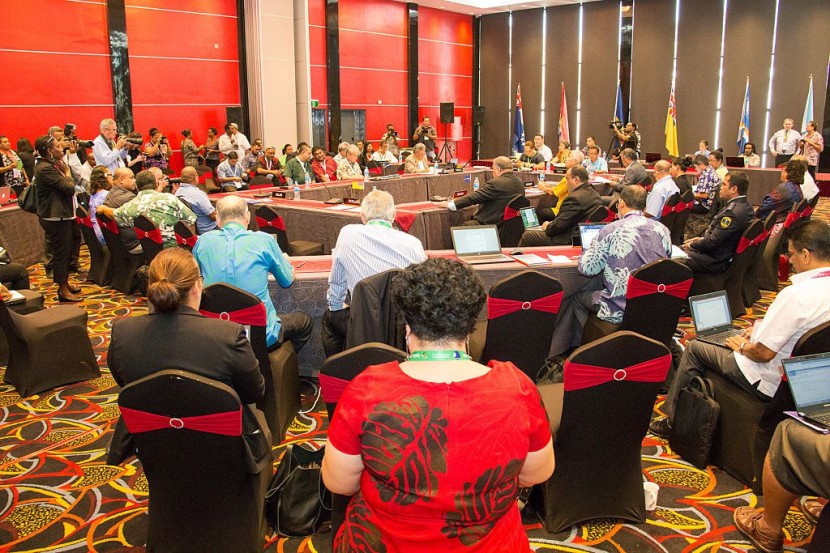
Biden wants to convince the Pacific Island nations from Chinese influence that have promised security and deals to improve infrastructure over US promises. China is perceived as a threat to US hegemony in the Pacific after Beijing's effective diplomatic overtures and a security initiative that benefited the Solomon Islands.
Washington's Intention
The Biden administration wanted to push these countries toward the US perspective on security, and climatic change, as a direct consequence of Chinese diplomacy in the Pacific Islands. A free and open Indo-Pacific is one of Washington's top priorities, though many countries recently haven't backed the current US president's initiatives, reported RT.
The meeting was called by US officials as the first ever US-Pacific Island Country Summit, to be held in the US capital on September 28 and 29, said White House officials on Friday. A "first-ever US-Pacific Island Country Summit," as officials have dubbed it, will take place in Washington, DC, on September 28 and 29, the White House announced on Friday, noted Republic World.
To foster shared history, values, and ties to all Pacific islands, the White House claims that the summit's background is the development of relations and long-lasting partnerships with Pacific Island nations.
One concern with the ambitious summit is how many will bother to attend it, as this announcement is another attempt to prevent Washington from losing ground.
US To Entice With Pledges, Not Monetary Commitments
Senior State Department officials visited the Solomon Islands, Fiji, and Papua New Guinea in April last year. Throughout their visit, they made a variety of pledges to entice these island nations. They included offers on climate change and even health care in these three nations after making their initial offer of a US embassy in these islands.
After closing its compound in the Solomon Islands in 1993, the US now keeps diplomatic ties with Vanuatu, Papua New Guinea, and the Solomon Islands with a single consulate in the former nation's capital. But Vanuatu has never had a US embassy, citing Cial Getusa.
The US joined with the United Kingdom, Australia, New Zealand, and Japan in establishing closer contact with Pacific nation governments via the "Partners in the Blue Pacific" initiative.
The Biden administration warned Beijing that its military presence in the Pacific in reaction to a deal struck by China to have major security and diplomatic contract signed with the Solomon Islands in April. China's motives were different from what the US asserted, though.
The Solomon Islands government has temporarily banned all foreign naval ships trying to dock there. On August 23, a Coast Guard ship asked for permission to halt and refuel but received no response. An explanation from Prime Minister Manasseh Sogavare of the islands said they could choose who enters port, but instead of taking it at face value, the US noted otherwise.
John Kirby of the US National Security Council spokesman expressed dissatisfaction at the sovereign decision of the prime minister. The White House faces the challenge of Pacific Island nations choosing sweeping Chinese influence that promised monetary commitments and no strings attached compared to US pledges.
Related Article: Kiribati Withdraws From Pacific Islands Forum After China Offered Deal; US Allies Face Exodus of Members Challenge
© 2026 HNGN, All rights reserved. Do not reproduce without permission.








